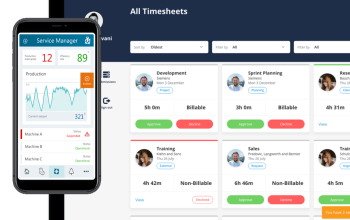Vehicle technology includes a variety of advancements that improve the efficiency and comfort of vehicles. Examples include collision avoidance systems, laser cruise control, parking sensors, and 360-degree camera systems. These advances are intended to make travel safer and more comfortable for both humans and other road users. However, there are both pros and cons to these new technologies. Here’s a look at some of the more popular ones. The future of vehicles may lie in combining several of these technologies to create the ultimate car.
Communication technology is a vital aspect of modern life. Using computers and mobile phones has made it possible to keep in touch with others, even when they’re thousands of miles apart. The modern corporate world and governing bodies rely on the power of these technologies to ensure the success of large operations. Meanwhile, technology in the industrial sector provides a faster alternative to older methods. Modern machinery, for example, is an example of technology in this field.
Entertainment tech includes a variety of systems for identifying people and objects. For example, smartphones are equipped with cameras that can recognize a face in an image. Computer vision powers popular search engines like Google Image Search. The use of these technologies is ubiquitous throughout everyday life. Embedded devices have the potential to revolutionize almost every aspect of our lives. You can find these embedded devices in everyday objects such as cars, houses, and energy infrastructure. They can also be useful around the home, including clothing and watches.
Increasingly, medical professionals use technology to help monitor a patient’s health. Some smartwatches are capable of collecting biometric data, while implants offer more sophisticated monitoring capabilities. Another important technology is GPS, or Global Positioning System. GPS is a system that pinpoints locations on the earth by using satellites orbiting the earth. GPS is used for real-time directions, monitoring the transit of different objects, and recording precise time measurements. Most smartphones, tablets, and larger tracking systems include GPS functionality.
Today, information technology is ubiquitous, and it’s becoming essential for businesses. Internet search and other search tools have revolutionized office work. Companies that use office productivity software, such as Microsoft Excel, can integrate it with other tools to improve efficiency. They can also integrate decision-making software, like PowerBI, into their business processes. Increasing use of mobile devices has also led to flexible work environments. Likewise, cloud computing is revolutionizing the way people store and process information.
Artificial intelligence (AI) is a popular technology that simulates human intelligence in machines. It’s the brain behind many computer functions, including self-driving cars. The technology is even being used in our cars as a form of cruise control. Smart phone and laptop features use AI to study user behaviour. These technologies are the future of our daily lives. So, it’s no surprise that AI is becoming an integral part of our daily lives.




